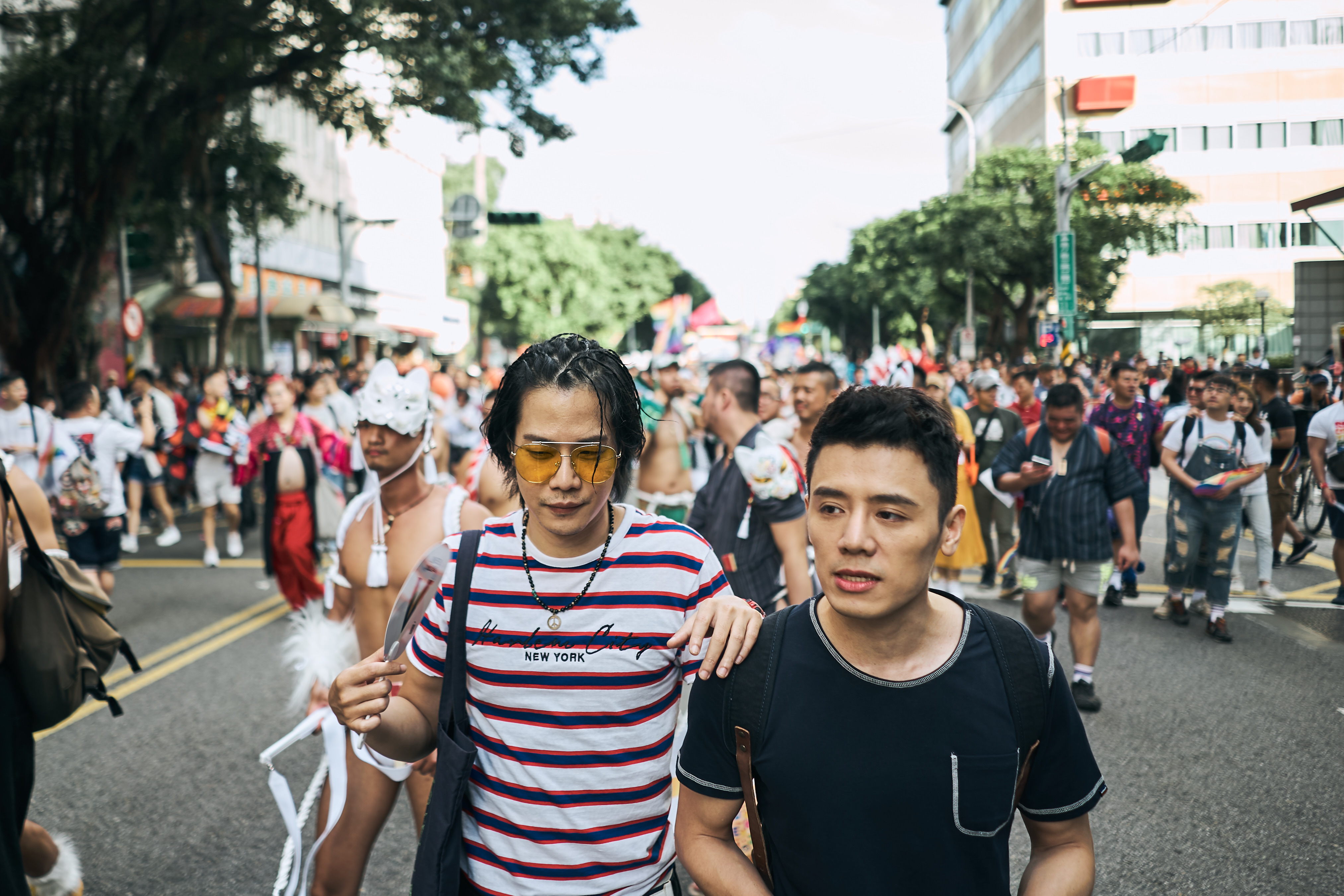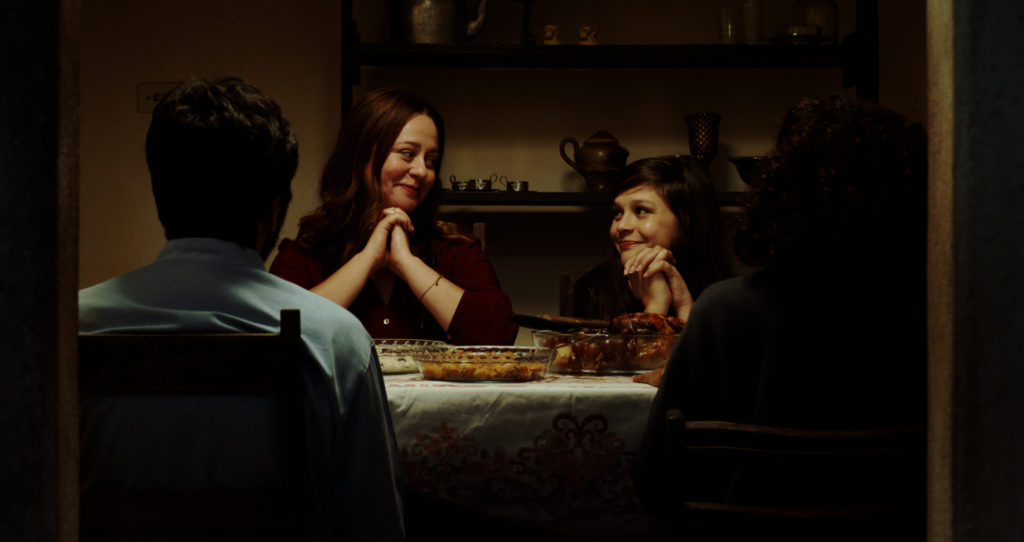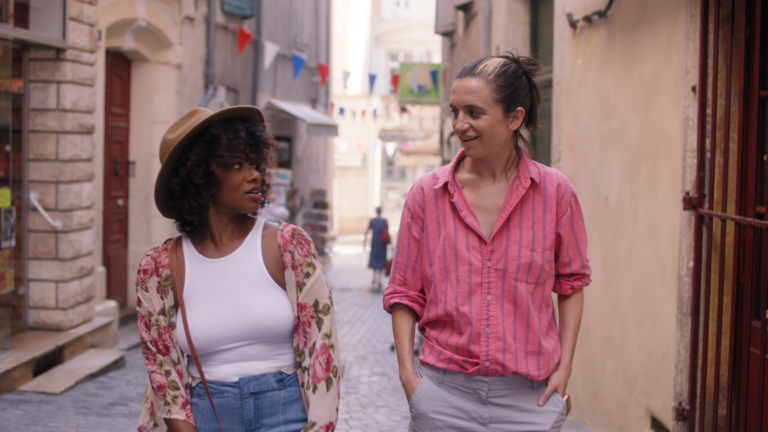Ma Belle, My Beauty (2021 | USA | 93 minutes | Marion Hill)
When ex Lane (Hannah Pepper) comes to visit Bertie (Idella Johnson) and Fred (Lucien Guignard), an uneasy and lopsided set of polyamorous relationships reignites. This drama of complex interpersonal dynamics is a slow mover set against a stunning backdrop of pastoral Southern France. Not everything works, and sometimes the acting feels a bit stiff and theatrical, but it’s a compelling look at two women who make themselves miserable by not knowing what they want.

The Teacher (2019 | Taiwan | 92 minutes | Chen Ming-lang)
Kevin (Oscar Chiu) is a young gay man who teaches high school civics. A bathhouse hookup becomes a stable long-term relationship, but things get complicated as the new lover’s estranged wife is still in the picture – and then, only after the two men have already moved in together, does the lover reveal that he is HIV positive.
As we watch Kevin navigate the different degrees to which he is safe and comfortable being “out” at home, at work, and in public, a complex picture comes into focus of the state of the queer experience in Taiwain today – or at least in 2019, just before gay marriage was legalized there. His mother is totally supportive and accepting and only cares that he’s taking care of himself and being treated well, and he joins public marches and protests in favor of LGBTQ+ rights – this isn’t a closeted person fearing persecution. But to his lover’s family, he’s only a “friend”, and at work, while his boss seems generally comfortable with a “don’t ask, don’t tell”-type policy (not unreasonable for any school, where a teacher’s sexuality probably doesn’t need to be a topic of conversation), once rumors start circulating among the students regarding both his sexuality and his possible HIV status, the push is on to force him out of the job.
Sometimes the film’s editing is a bit choppy, and the reinforcement of the harmfully stereotypical conflation of homosexuality with HIV-positive status (we really only get to know two queer characters, and each one either is or may be positive) is highly problematic. I’m not sure whether this is culturally educational information about current Taiwanese attitudes toward these issues, or if this just happens to be an unfortunately regressive aspect of Chen Ming-lang’s script. But the heart of this story is a nuanced character study of a naïve, sincere young man, filled with lots of sweet, gentle humor (which actually brought out some of my first out-loud laughs in over 20 films of this festival, sitting alone in my apartment) and a delicate and natural performance by Chiu. He’s a talent to watch, and if you can forgive this film its structural sins, there are some really lovely moments to be found here.

Valentina (2020 | Brazil | 95 minutes | Cássio Pereira dos Santos)
Valentina (Thiessa Woinbackk) is a Brazilian trans teen who, because of her mother’s job, must move from her happy city life to a conservative small town.
She actually very quickly finds great friends in this new setting – including Julio (Ronaldo Bonafro) who is a gay teen with his own compelling side plot. Also, like in The Teacher, Valentina’s mother (Guta Stresser) is nothing but supportive, a role model parent of LGBTQ+ youth – this isn’t only a story of queer misery – but still, our intrepid lead does of course encounter her share of bigots and institutional roadblocks. But Valentina is up to the challenge.
I often find that films described as “inspiring” (as this one is) tend to skew more toward the treacly side of “sentimental”, which is a type of film that seems to work for some people – those who are looking for simple positive affirmations from their cinematic experience – but generally is pretty firmly not for me. That’s not what this film is, though. It relies on very naturalistic writing, cinematography, and acting, and a story line that consciously includes queer joy as well as pain, so that when the tearjerking moments come (and they do, both the tragic and the triumphant sorts), they feel earned rather than manipulated.
Director Cássio Pereira dos Santos also participated in a live Q&A about his film on Saturday, April 10, moderated by SIFF programmer Hebe Tabachnik, which is now archived on the film’s page and available for viewing on demand. His illuminating comments cover the current political conditions in Brazil, as both LGBTQ+ rights and arts budgets have faced frustrating new roadblocks with the current administration there (and he dropped the staggering statistic that 80% of trans students in Brazil drop out of school). He also notes that not only is Thiessa Woinbackk, who plays Valentina, a trans actress, there is also a trans actor in the film playing a cisgender male role. (A cool win for representation, at least the second in this fest to do so after Together Together!) He also describes developing a “social impact strategy” for the film’s release, which is easily as important to him as getting this film in front of cinephiles – plans are in motion to get it screened in community centers and even in Brazilian schools, in an effort to be a part of shifting that tide of public opinion away from the right-wing reactionaries in power, who are creating danger for trans youth, and toward inclusion, acceptance, empowerment and joy.
Keep up with us during the festival on Twitter (@thesunbreak) and follow all of our ongoing coverage via our SIFF 2021 page.



